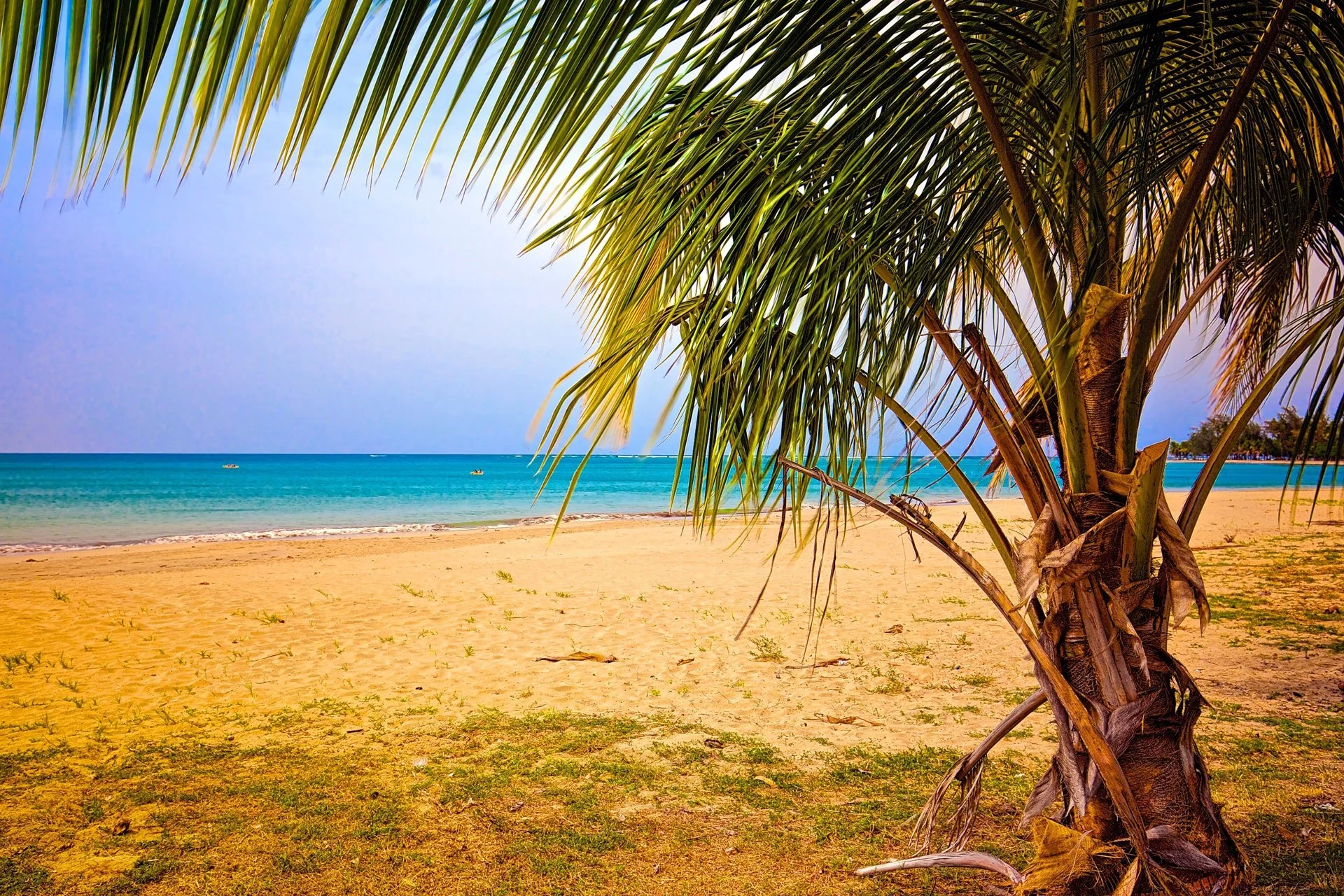An eco-adventure through Puerto Rico
From bioluminescent bays to its soaring rainforest, Puerto Rico offers an abundance of natural treasures. The country is home to unique wildlife, all part of an intricate ecosystem that is as beautiful as it is fragile. Rest assured, there are ways to venture through all this in ways that can preserve, protect and nourish what you leave behind.
El Yunque Rainforest
Your first stop may be the El Yunque rainforest, where you can encounter hundreds of unique species across 30,000 acres. Here, Puerto Rican parrots nestle in the hollows of soaring tabonuco trees. Coqui frogs as small as the tip of your thumb vanish in the vibrant maze of flora. Zebra plants rise like flames amidst slick, dark foliage, and beehive ginger plants stand sentry, their honeycomb-like structures drawing the eye with their almost psychedelic glow.
Coqui frogs
When you emerge from the trees, you can feel yourself shrink under the highest peak of Yuke, crowned by the white clouds that earned the mountain its moniker: the “white lands”. At the mountain peaks, palm trees grow in floodplains, herbaceous plants sprawl over bogs, and trees hug riverbanks. Vegetation shrouded in the “Cloud Forest” responds uniquely to the extremes of the environment, soaking up the highest rainfall, the lowest incoming sunlight, while enduring the highest wind speeds.
Balneario La Monserrate
Sweeping across the peaks of El Yunque, and down through the Luquillo mountains, a traveller will emerge onto Monserrate beach, or “Balneario La Monserrate” to the locals. After a hardy forest expedition, this peaceful paradise can provide a welcome rest. The waters are calm, offering a soothing balm for the aches gained from intrepid travel. Like many other beaches in Puerto Rico, Balneario La Monserrate is a certified Blue Flag beach. Blue Flag beaches provide environmental education activities for the public, making them aware of the local biodiversity, ecosystems and natural phenomena. Plus, they are committed to making their beaches safe, and accessible for people with physical disabilities. They are places to relax, interact, and open your mind.
Organic Farm, Puerto Rico
There is so much to experience in nature in Puerto Rico, but a trip would not be complete without immersing yourself in its rural communities, and culture. An authentic way of doing this is through “agritourism”, where tourists stay with and support people in rural areas. It is common to only catch glimpses of remote rural life as one passes from one famous landmark to another. But why not stop, stay, and soak up the sights and sounds of everyday life? The Food Network offers a gateway to these communities, and opportunities to support them. You could get hands-on in soft soil, sowing seeds in Spring, and plucking ripe papayas in Summer. Or perhaps you could learn about hydroponics, growing organic crops in nutrient-rich water, before selling them at lively market stalls. If you’re an animal lover, you could rear chickens, milk goats, or guide horses to grassland. All the while, you can befriend locals, twisting your tongue around local folk songs, or shuffling to perfect the steps of a traditional dance.
Bio-luminescence, Mosquito Bay, Puerto Rico
The sheer variety of places to go and things to do in Puerto Rico is incredible, and it is only through variety that its ecosystems thrive. But the biodiversity of the environment in Puerto Rico is constantly under threat as changes in the climate cause ripple effects. Rising temperatures and winds could destabilise the bioluminescent wonders of Mosquito Bay. Increasing sea surface temperatures may lift the base altitude of cloud formations, raising the beloved Cloud Forest above the wilderness it waters. High-elevation amphibians, like the Coqui frog, could find their environment too warm and dry to tolerate, and the endangered Puerto Rican parrot may struggle to survive as more predators encroach on their habitat. These intricate ecosystems are all interdependent. It is, therefore, more important than ever to think not only about “low impact”, but how we can have a positive impact when we set out across biodiverse landscapes. It is natural for us to protect what we cherish, so why not do that as we travel?
Visit Discover Puerto Rico to plan your trip to the heart & soul of the Caribbean.





